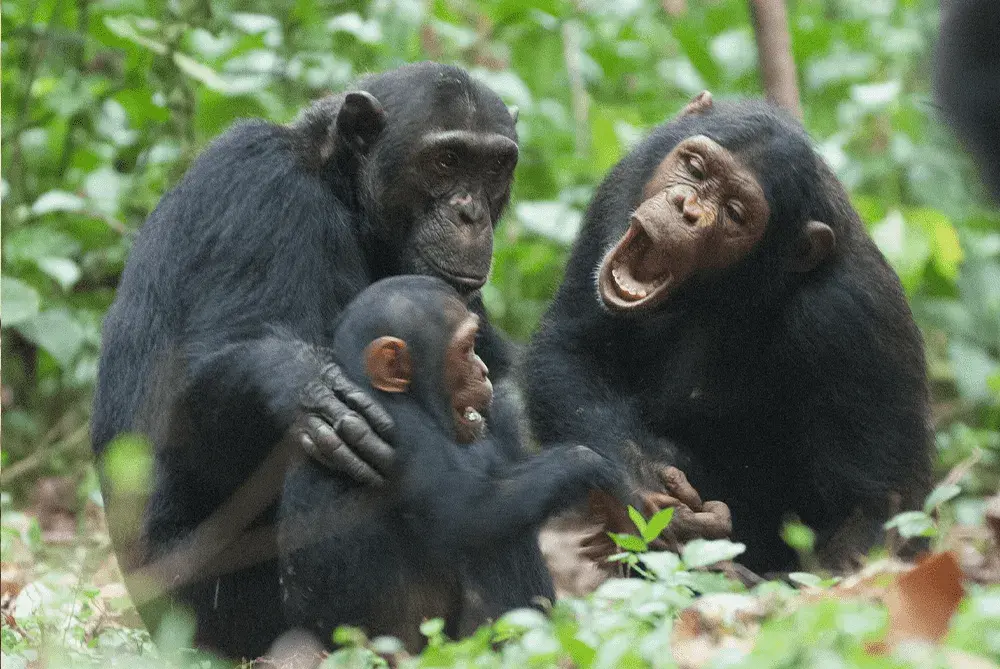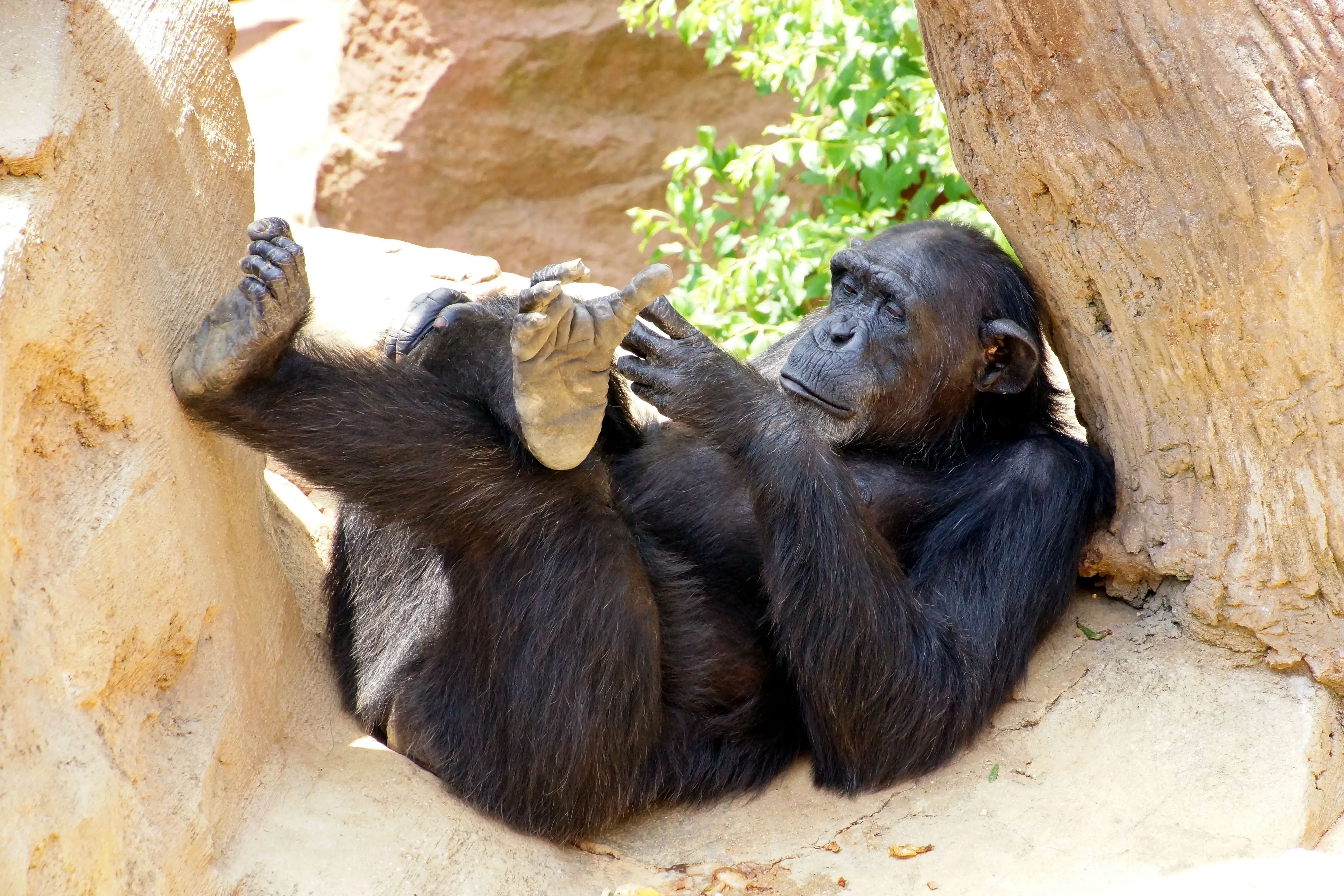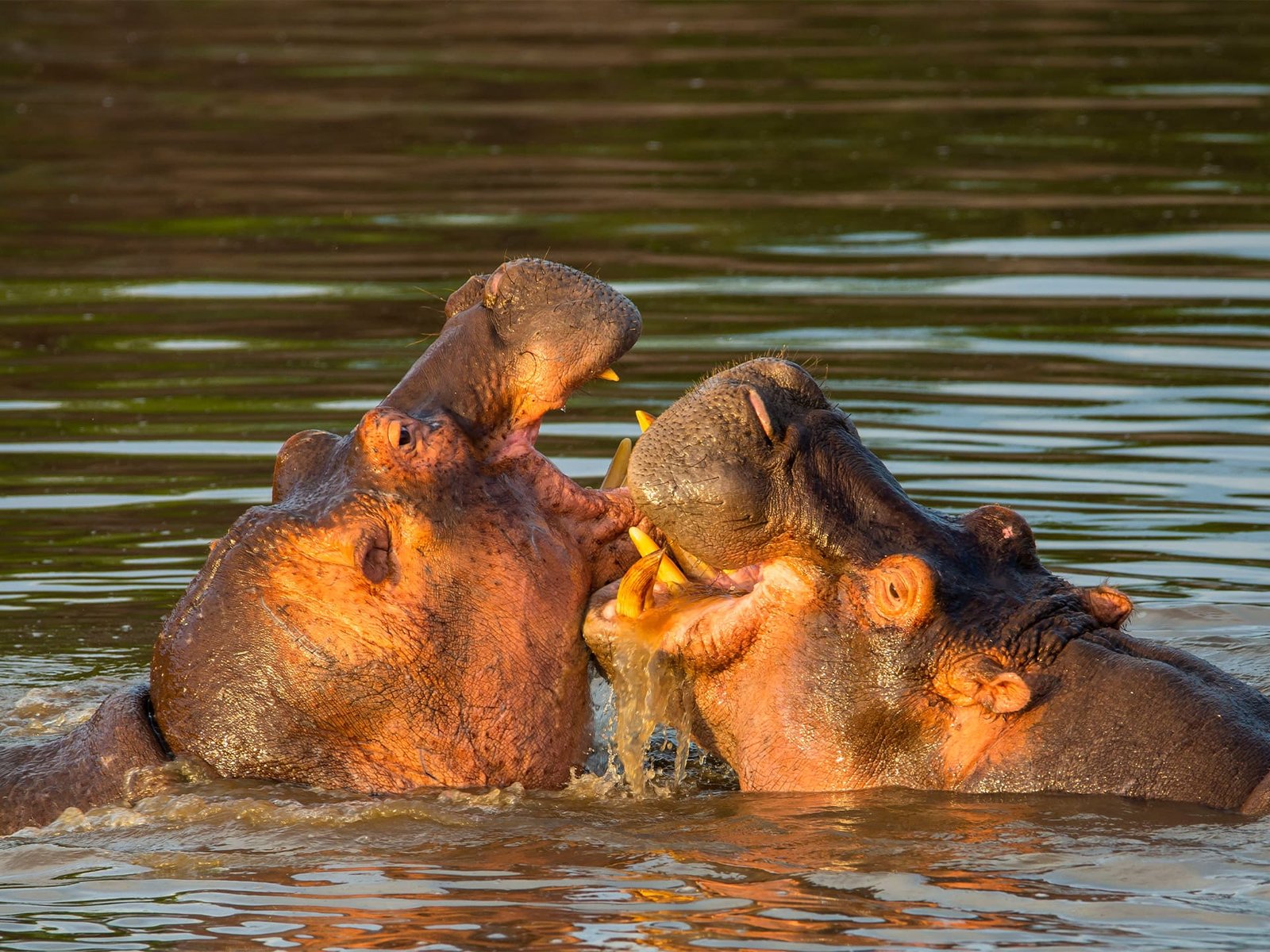
Gombe Stream National Park
With an area of only 52 sq km, Gombe Stream National Park is Tanzania’s smallest national park, but its connection to Jane Goodall has given it world renown. Many of Gombe’s 100-plus chimps are well habituated and though it can be difficult, sweaty work traversing steep hills and valleys, if you head out early in the morning sightings are nearly guaranteed. As well as chimp tracking you can see Jane’s old chimp-feeding station, the viewpoint on Jane’s Peak and Kakombe Waterfall. In addition to walking in the forest, it’s possible to swim in the lake (no hippos or crocodiles, though bilharzia may be a risk) or hike along the shore.
Chimpanzees share about 98% of their genes with humans, and no scientific expertise is required to distinguish between the individual repertoires of pants, hoots and screams that define the celebrities, the powerbrokers, and the supporting characters. Perhaps you will see a flicker of understanding when you look into a chimp’s eyes, assessing you in return – a look of apparent recognition across the narrowest of species barriers.
The most visible of Gombe’s other mammals are also primates. A troop of beachcomber olive baboons, under study since the 1960s, is exceptionally habituated, while red-tailed and red colobus monkeys – the latter regularly hunted by chimps – stick to the forest canopy. The park’s 200-odd bird species range from the iconic fish eagle to the jewel-like Peter’s twin spots that hop tamely around the visitors’ centre. After dusk, a dazzling night sky I complemented by the lanterns of hundreds of small wooden boats, bobbing on the lake like a sprawling city.




















